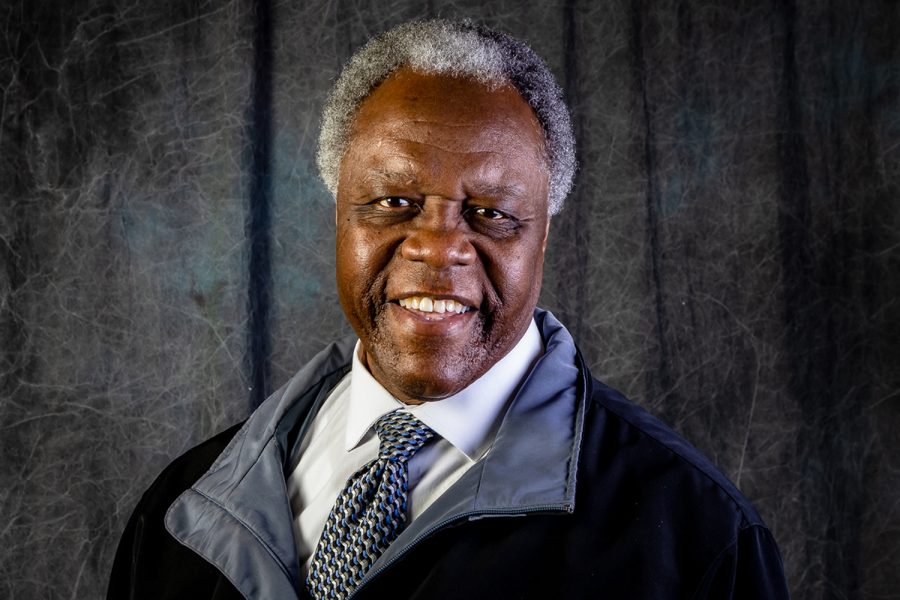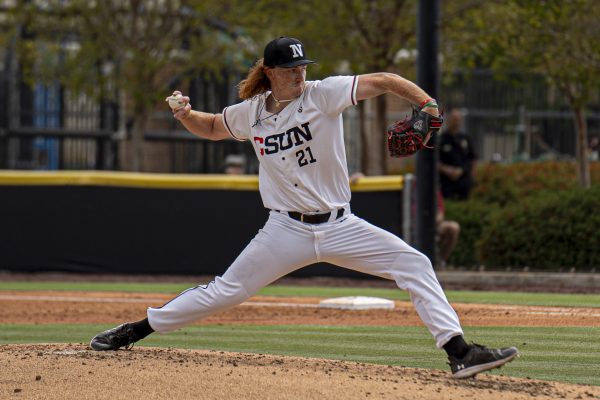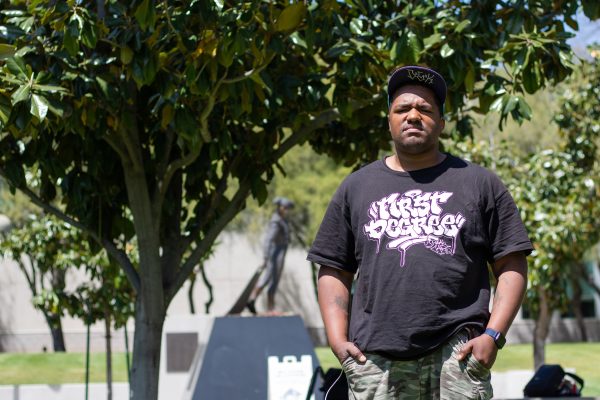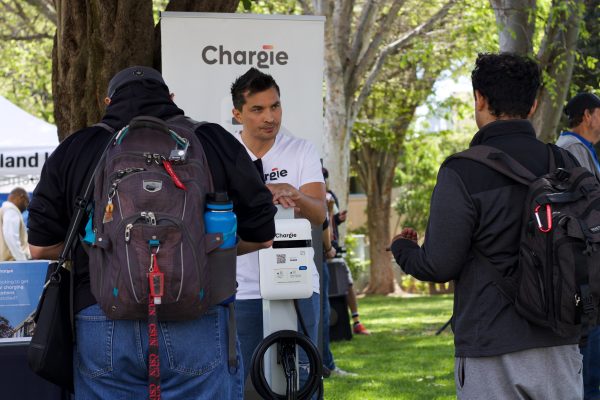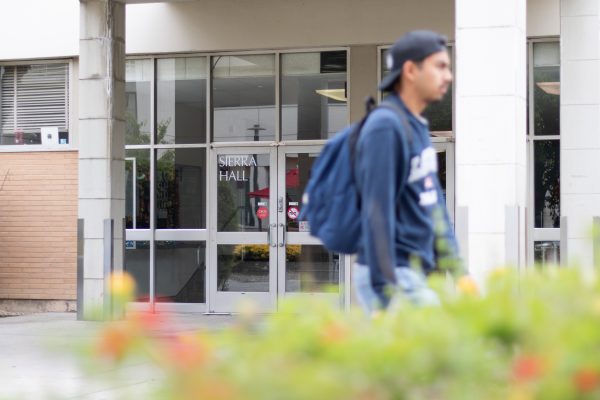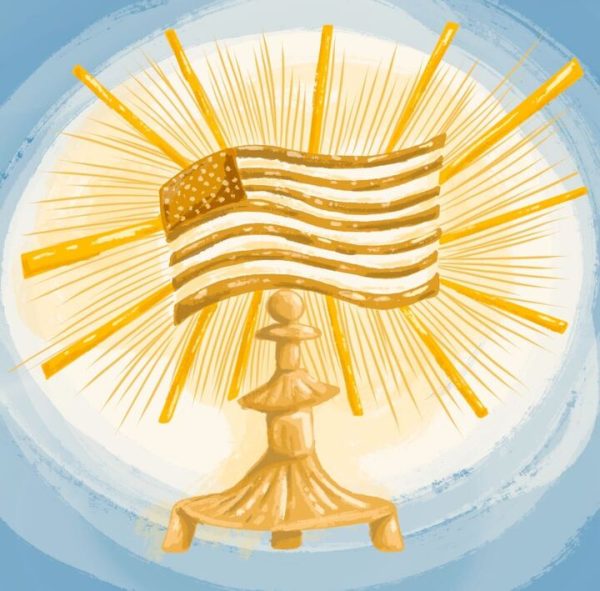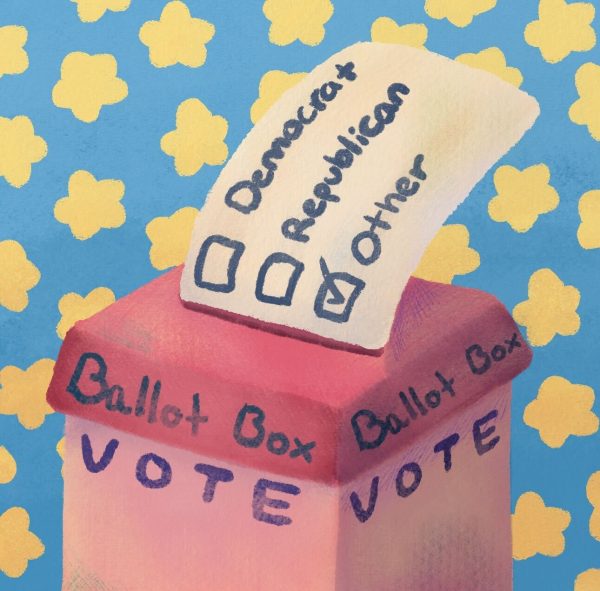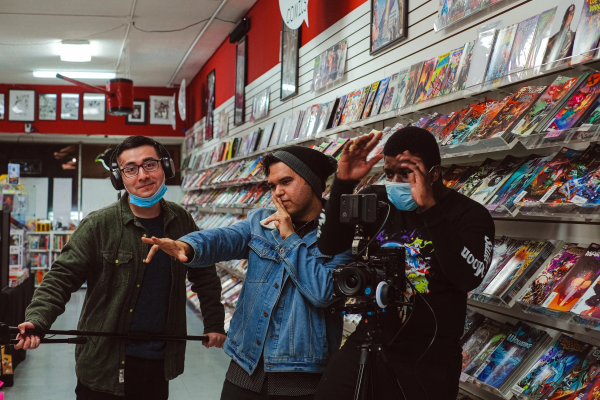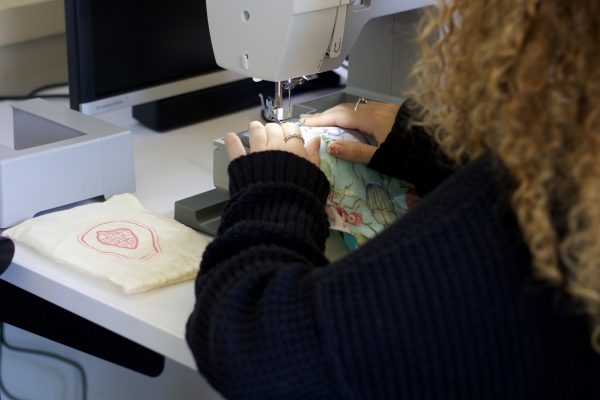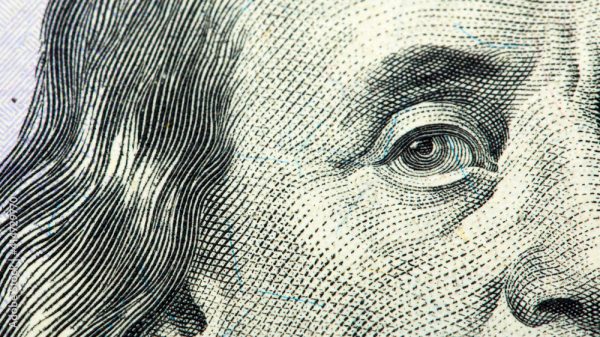CSUN alumnus’ path to mayoral candidacy
Portrait of Mel Wilson.
May 12, 2022
Mel Wilson has always pivoted careers to match the moment. From playing in the NFL, to having decades-long careers in accounting, real estate and local government, the once-retired businessman and CSUN alumnus now looks to make a run for mayor of Los Angeles.
CSUN did not have a large Black student body when the Alabama native enrolled at the university — known back then as San Fernando Valley State College — through the Educational Opportunity Program in 1970.
He was conscious of the fact that he — a Black man — was enrolling in a university that recently had students arrested for taking over the administration building to bring awareness to what they felt was a racial equity gap in the school’s curriculum and racism on campus.
He credits the CSUN Black House — a building and resource for CSUN’s Black students and community members that was created in the 1970s — as a place where he was able to decompress and build relationships.
“It was a place of refuge,” Wilson said. “A place of nurturing. A place where we could get tutored.”
Another source of comfort and guidance came from CSUN’s former football coach Howard Marcus, who was also Wilson’s high school football and wrestling coach. After a chance encounter on campus, Marcus immediately asked Wilson to try out for the university’s football team.
Wilson had no plans to join the team, but he took Marcus’ words to heart, because to Wilson Marcus was more than just a coach.
“He’s like a surrogate father to me,” Wilson said. “And he still is. We still keep in touch with each other.”
After making the team and playing for several seasons, Wilson left school after he was drafted as a defensive back by the New York Giants in the fifth round of the 1976 NFL draft.
But even while playing for the Giants and eventually the Kansas City Chiefs, Wilson still knew he wanted to be a certified public accountant.
Wilson credits his underprivileged upbringing for his career choice. Wilson’s mother, who cleaned houses, would come home after her day job to prepare meals for him and his two siblings before leaving for her second job.
In an effort to make some money for himself, Wilson worked odd jobs, like picking up bottles from the street and working multiple paper delivery routes.
“I didn’t like being poor,” Wilson said. “I just knew I didn’t like being poor.”
That mentality followed Wilson throughout his career as a professional athlete. He knew he wanted to work as a CPA, but he also knew that he made more money playing professional football.
“Where can I go to make this kind of money,” Wilson said. “Accountants were making about $18,000 a year, but I was making about $40,000 a year playing professional sports. I was like, ‘I don’t want to go back to [earning] that.’”
After leaving his football career, Wilson returned to CSUN for his senior year in 1977.
That year, he did a research paper on the real estate industry. He suddenly became interested in a job in real estate, as it would allow him to have a flexible schedule. Now a husband and a father, proper work-life balance was, perhaps even more than the money, something that Wilson prioritized as he looked for a new career.
“I never wanted my family to have the same pain I felt,” Wilson said. “The pain of having an absent father in their life.”
Wilson began his career in real estate after getting licensed through an extension studies program at CSUN. Energized about starting a new career path, Wilson was ready to dive headfirst into the field.
Or so he thought.
“I worked for nine months and couldn’t get any business,” Wilson said. “It was a heartbreaking situation. I’m knocking on doors seven days a week, and I’m getting doors slammed in my face. I realized that I’m not going to make any money here, and I can’t afford to work much longer, for this much time, and not have any return.”
Wilson envisioned a career in real estate in the Northridge and Reseda area after graduation. Although initially attributing the slow work rate to being new in the field, Wilson’s experiences made him aware that something else was also working against him.
“I didn’t realize it, but there was a lot of racism still in the Cal State Northridge area. I mean all around campus,” Wilson said. “A lot of the folks, they tolerated us, but they didn’t accept us. They certainly were not going to do business with me, even though I was a [football] star. It didn’t matter.”
Wilson decided to move his business to his childhood neighborhood of Pacoima, where he said the ethnic makeup of the community was more diverse than Northridge’s.
In Pacoima, Wilson was able to find the success he hoped to have in Northridge.
Wilson would knock on doors and ask people in the community — sometimes in broken Spanish — if they, or somebody they knew, was interested in buying a home.
“Do you know anybody who wants to buy a home,” Wilson would ask. “Do you know anybody who wants to sell their home?”
Wilson credits part of his success to being one of the only agents working in an often neglected community. His business grew, with a significant portion of it involving CSUN students and recent graduates — people who knew him and his accomplishments both as a student and an athlete.
Feeling indebted to the people that gave him a chance, Wilson got more involved in the community. He joined local groups, including the CSUN alumni board, the local Chamber of Commerce and the Pacoima Property Owners Association.
Wilson’s career in politics began in 1984 when he learned about California’s Enterprise Zone Program. The now-defunct program was created by the state to help economically disadvantaged communities by granting them tax incentives, which in return would encourage businesses to invest in that community.
Pacoima was one of two areas in LA, and among 64 cities throughout the state, that applied that year, according to Wilson.
Wilson was appointed the chairman of the enterprise zone advisory committee of Pacoima after being asked by local council members and a state senator.
He created the final application with help from a team of local business owners, nonprofit organizations, Los Angeles County Department of Public Health nurses and former CSUN professor David Hornbeck.
Wilson successfully lobbied the city of LA for resources and support, which helped Pacoima become one of the first enterprise zones in California. The success caught the attention of local government officials.
In 1993, then-Mayor Richard Riordan appointed Wilson to become one of the first 13 board members of the newly formed Los Angeles County Metropolitan Transportation Authority. Four years later, Wilson asked Riordan to be taken off of the committee after feeling that he was starting to let his work get in the way of him spending time with his family.
Riordan offered Wilson a position in the Los Angeles Fire Department Commision. Although he accepted the position, Wilson would gradually take on less time-consuming roles in government over the years.
Wilson decided to walk away from life in local politics in early 2020. He had always wanted to drive across the country with his wife in a pickup truck to visit friends, family and national parks.
Then the pandemic hit, and Wilson’s retirement full of travels was relegated to one in quarantine.
It was last year when Wilson’s wife — who he describes as being risk averse and constantly cautious — noticed he was upset.
“They’re messing up my city,” Wilson told her. “Look at what’s going on. It looks dirty, right? People are scared. Homelessness is all over the place. Nobody’s solving this problem.”
In response, she told him that he should run for mayor.
Wilson’s goals as mayor include cutting LA’s vehicle emissions. Wilson proposes making Metro’s fleet of over 2,000 buses electric, or running them on alternative fuels.
Metro has already made some changes that reflect this mindset, including making the G (Orange) Line fully electric, leaving zero emissions behind.
Wilson argues that Access Services, an agency that provides transportation services to disabled individuals who are unable to ride on other forms of public transportation in LA County, could do the same.
In an effort to encourage drivers to purchase electric vehicles, Wilson proposes having the Los Angeles Department of Water and Power lower the utility rates of electric vehicle owners.
The plan would presumably be an add-on to the department’s rebate program, which offers money back to help pay for the installation of qualified EV chargers and meters.
Wilson proposes having the city government subsidize minimum wages for college students.
The idea came to him after learning through focus groups with young student voters that many of them struggle financially during their college life, and immediately after. He also learned that many of their financial struggles force them to live with their parents into their late 20s, and even their late 30s. In an effort to help them out, Wilson thinks the city can add on extra dollars to a minimum worker’s wages.
“The city [would] give you $2 to $3 on top of [the minimum wage] per hour. But you have to go to school. You don’t have to be an A student. You just have to get through it.”
At this stage of his career, Wilson often reflects on both his professional and personal achievements. Surely some of his happiness stems from the many roles he’s been able to play in local business and politics, but that same happiness is amplified when he takes into account his roots.
“There were times when I served on the Metro board,” Wilson said. “I thought, ‘Here is this poor kid from Alabama who grew up barefooted, picking cotton. Now I’m sitting on the board with the most powerful politicians in the region!’ I’m like, ‘Wow, there’s no limit!’ There’s really no limit.”
The most recent poll from the University of California, Berkeley’s Institute of Governmental Studies — co-sponsored by the Los Angeles Times — has Wilson polling below 1% as either a first- or second-choice candidate among voters.
His polling numbers are so low that he was among the candidates that were excluded from the last two LA mayoral debates at USC and California State University, Los Angeles. Both debates only included the top five candidates based on “publicly available polling data, media coverage, endorsements and fundraising,” according to what debate organizer Raphael Sonenshein told the Los Angeles Times.
But Wilson is comfortable with whatever may come in the June 7 primary election.
“I’ve had a wonderful life. I don’t need to be mayor,” Wilson said. “I have so many accolades. My biggest accolade is that I’ve been married to the same girl. I’ve got beautiful kids. I’ve given back. If God were to take me home today, I’ve had a life, a robust life.”
